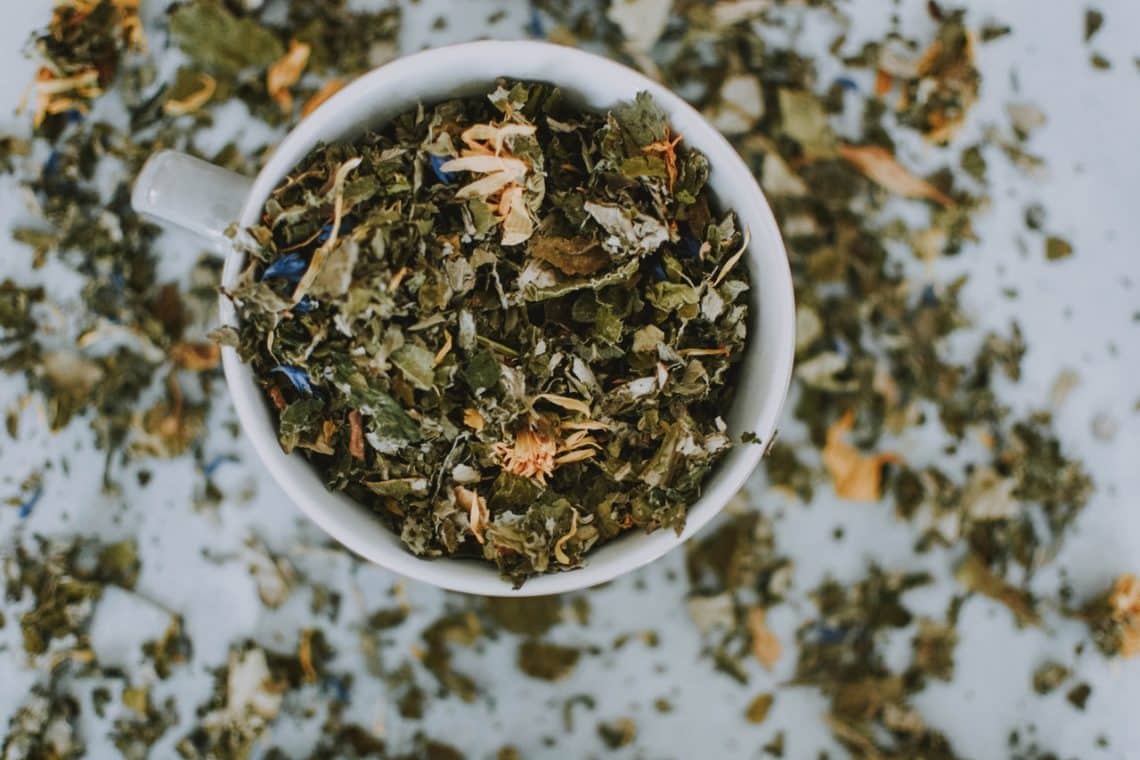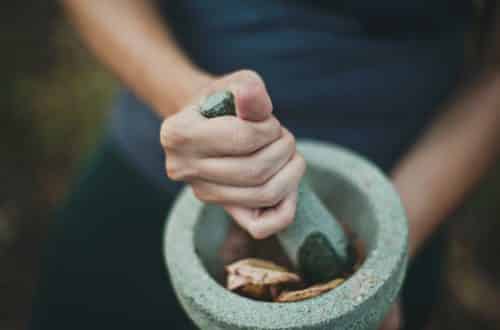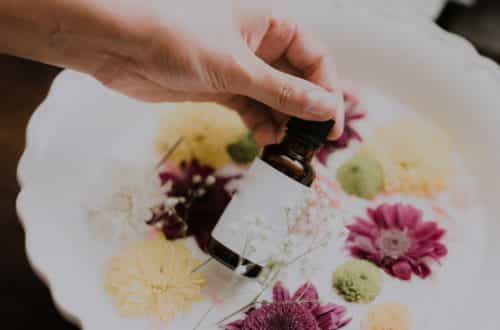
How to Use Ashwagandha for Cancer Treatment – Full Guide, FAQs, & More
Quick Navigation
This post may contain affiliate links. Read the full disclosure here
If you’re then you must be aware that recently, people have started using this wonder herb to treat cancer or those at risk of cancer.
Although it is a natural herb with numerous benefits, the real question is, is it safe to take Ashwagandha for all types of cancer without considering ongoing treatment?
In this post, we will brief you about what Ashwagandha is and how to use it for cancer.
Quick Summary
In this post, we will go over the following points:
- What is Ashwagandha?
- Should you use Ashwagandha for cancer?
- What to consider while choosing an Ashwagandha supplement for your cancer?
- Ashwagandha dosage
- Ashwagandha side effects
So, without further ado, let’s get started.
What is Ashwagandha?
You may already be familiar with the hype around Ashwagandha. Scientifically known as Withania Somnifera, it is also called Indian ginseng or winter cherry.
Ashwagandha has been a staple in Ayurvedic medicines for thousands of years. It can ease pain, boost nutrition, and help with insomnia, anxiety, and other diseases.
Although Ashwagandha is an adaptogen, various researchers claim it can fight against various types of cancers. However, the exact mechanism is still unknown.
What we do know is that it limits the activity of cancer cells in breast, colon, ovarian, lung, and brain cancers.
There are also studies on thyroid, gastrointestinal, cervix, and skin (melanoma) cancers.
Not only that, but Ashwagandha can also alleviate the effects of chemotherapy and radiation.
Here are some other benefits of Ashwagandha:
- It may help lower blood sugar levels
- It helps lower stress, anxiety, and depression
- It improves brain functions and cognitive functions like memory.
- It can lower bad cholesterol levels
- Helps build and strengthen muscles
- Contains anti-inflammatory properties
- Can have diuretic effects
- Helps to boost fertility in men
- Lowers cortisol levels
- Reduces inflammation
…and more.
Should You Use Ashwagandha For Cancer?
There is no easy way to answer this question because it depends.
Just like some treatments work for some cancer patients while others don’t, Ashwagandha may or may not be harmful.
However, with personalized monitoring and tracking of cancer through blood and saliva, there has been a great improvement in cancer treatment. The earlier you intervene, the better will be the results.
After the diagnosis of cancer such as Endometrial Carcinoma, you go through personalized treatments, tumor genomics, and other factors according to your age, gender, and type of cancer.
This is where most people get prescribed nutritional supplements such as Ashwagandha.
But, Ashwagandha is not a one-size-fits-all supplement for all types of cancers.
It contains many active ingredients such as Withaferin A at various concentrations.
Some of the molecular pathways controlled by Ashwagandha are:
- Vitamin D Signaling
- Post Translational Modification
- Stem Cell Signaling
- PI3K-AKT-MTOR Signaling
- Endoplasmic Reticulum Stress
All the pathways directly or indirectly affect the cancer molecular endpoints like speed, growth, and death of the cancer cells.
Therefore, it’s imperative that you choose the right Ashwagandha supplement. You do not want to mess with the biological regulation of the treatment.
Note: If you want to know How to Make Ashwagandha Hair Oil click HERE.
What To Consider While Choosing an Ashwagandha Supplement For Your Cancer?
Can Patients with Endometrial Carcinoma undergoing Cyclophosphamide Treatment use Ashwagandha?
Endometrial Carcinoma is caused by gene mutations like PTEN and PIK3CA. This causes changes in different biological pathways such as vitamin D Signaling, PI3K-AKT-MTOR Signaling, JAK-STAT Signaling, Small Molecule Transport, and MAPK Signaling.
In this case, cancer treatments like Cyclophosphamide will work best to overlap the treatment and the cancer-causing pathways.
Therefore, any food or supplement that aids the treatment and the overlap should be used.
Ashwagandha influences pathways like Vitamin D Signaling and PI3K-AKT-MTOR Signaling which either block drivers of Endometrial Carcinoma or improve the effect of Cyclophosphamide treatment.
Note: If you want to know What is KSM-66 Ashwagandha click HERE.
Is it Safe for Individuals with VHL Mutation Associated Genetic Risk to use Ashwagandha?
It’s a good idea to get tested with panels of genes to assess genetic risk for different cancers. Most of the time, these panels will include genes associated with the breast, ovary, uterus, prostate, gastrointestinal system, and other types of cancers.
Moreover, these tests may verify a diagnosis and aid in creating a treatment plan or management decisions.
VHL mutation impacts biochemical pathways including
- Post Translational Modification
- Endoplasmic Reticulum Stress
- Stem Cell Signaling
- Hypoxia and Growth Factor Signaling
These paths can be direct or indirect drivers of cancer molecular endpoints.
We recommend you avoid Ashwagandha if the genetic panel identifies the gene mutation of VHL for kidney cancer. This is because Ashwagandha can impact pathways like post-translational modification and cause damaging effects with VHL and related conditions.
Note: if you want to know the complete guide and reviews about Ashwagandha click HERE.
Can You Take Ashwagandha For KIT Mutation Associated Genetic Risk?
Kit mutation impacts the following biochemical pathways:
- Stem Cell Signaling
- PI3K-AKT-MTOR Signaling
- JAK-STAT Signaling
- RAS-RAF Signaling
Similar to the last two mutations, these pathways are also drivers of cancer molecular endpoints.
However, in this case, we would recommend you take Ashwagandha supplements for gastric cancer and hematological cancer. Ashwagandha supports KIT mutation and related conditions. It also impacts pathways like Stem Cell Signaling and PI3K-AKT-MTOR Signaling.
Ashwagandha Dosage
There is no standard dose for Ashwagandha supplements.
If you search online, you will find a variety of different doses. Most of the time, supplements with lower amounts of Ashwagandha tend to have multiple ingredients. Whereas, high doses are Ashwagandha-specific supplements.
Since Ashwagandha affects everyone differently, we recommend you start at a low dose to gauge your tolerance.
It’s a good idea to start with one capsule. If you do not have any severe reactions or side effects, slowly move on to the full suggested dose.
Don’t forget to talk to your healthcare professional before you add Ashwagandha supplements to your diet. It’s important to mention all the medication you’re taking to reduce the risk of side effects.
Note: If you want to know more information about Ashwagandha click HERE.
Ashwagandha Side Effects
Since Ashwagandha is a safe herbal supplement, the side effects of this herb are uncommon. Most of the time Ashwagandha doses range from 125mg to 5g, divided into 2-4 doses every day.
However, high doses can result in:
- Gastrointestinal issues
- Diarrhea
- Nausea
- Vomiting
- Drowsiness
- Nasal congestion
- Cold
- Constipation
- Changes in appetite
Moreover, you should avoid Ashwagandha if you:
- Are pregnant or breastfeeding
- Suffer from diabetes
- Have high blood pressure
- About to go through surgery
- Have stomach ulcers
- Suffer from autoimmune conditions
- Have a thyroid disorder
Wrapping Things Up…
This ends our guide on how to use Ashwagandha for cancer.
The most crucial thing to keep in mind is that cancer treatment and nutrition are not the same for everybody.
If you choose to take Ashwagandha as a supplement is your choice. However, your decision should consider the following:
- Cancer gene mutation
- Type of cancer
- Ongoing treatment
- Allergies, lifestyle
- Weight
- Gender
- Height
Have you tried Ashwagandha? Leave your experience in the comments below.
If you want to know how you can take care of your body and mind we have a complete guide click HERE.







